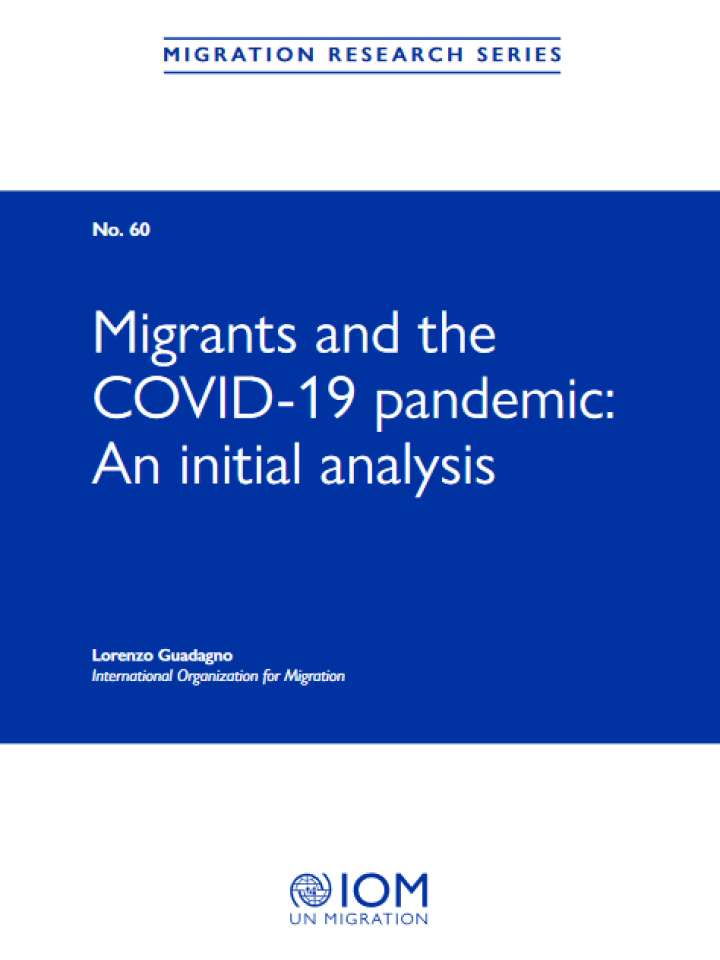Migrants and the COVID-19 pandemic: An initial analysis
This paper analyzes the specific ways migrants have been affected by the coronavirus disease 2019 (COVID) pandemic and presents a diversity of measures adopted in migrants’ host and home countries to prevent, mitigate and address its negative impacts. By doing so, it aims to provide insights for more inclusive and effective COVID-19 policies and operations.
The paper highlights that:
- Past and current experience shows that crisis response measures cannot effectively include migrants unless they proactively address underlying conditions of vulnerability linked with migratory status and immigration policies, migrants’ socio-economic situation, and xenophobia.
- Excluding migrants from COVID-19 awareness and prevention activities, screening and testing, and adequate treatment and follow-up undermines the effectiveness of relevant public health effort.
- The impacts individual migrants will suffer will be a key determinant of broader demographic, social and economic trends.
- The centrality of migrants in the social, cultural and economic fabric of our globalized world, suggests that only inclusive approaches help protect and promote everybody’s rights, health and well-being, can allow communities and societies to respond more effectively to this crisis, and reduce the risk of future ones.
Explore further
